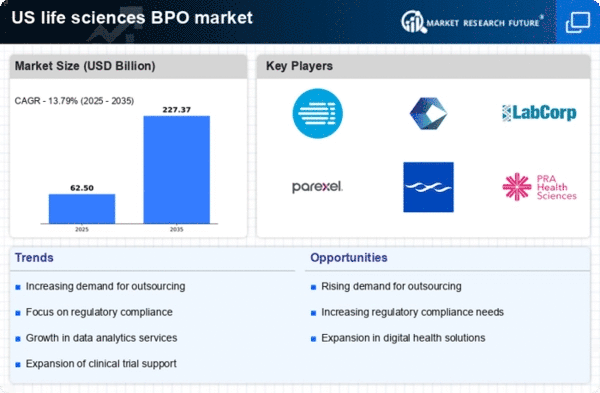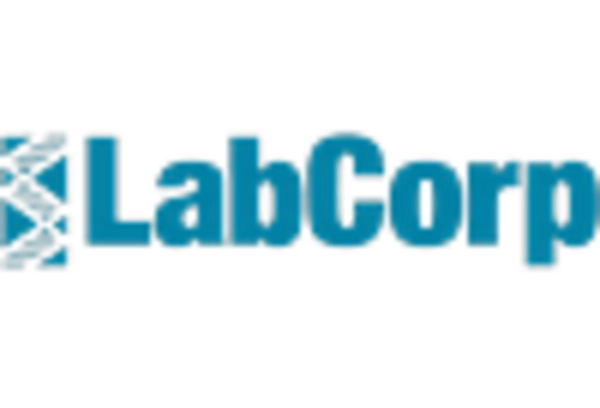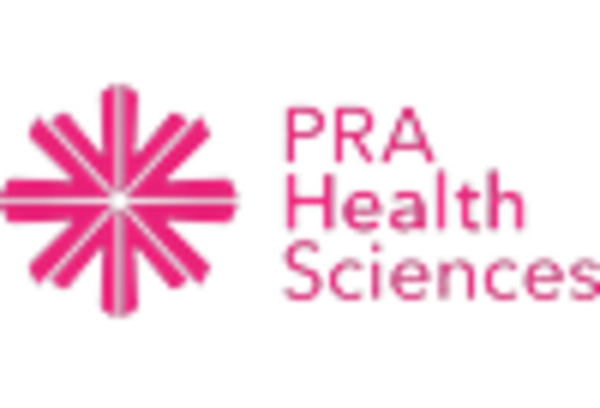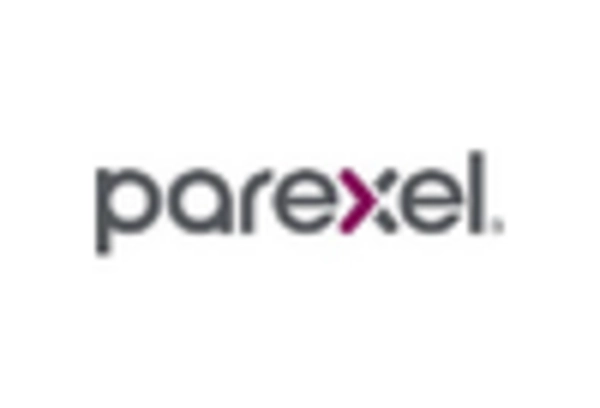Increased Regulatory Scrutiny
The life sciences-bpo market is significantly influenced by heightened regulatory scrutiny across the industry. Regulatory bodies are imposing stricter guidelines and compliance requirements, compelling life sciences companies to enhance their operational frameworks. This has led to a surge in demand for BPO services that specialize in compliance management, quality assurance, and regulatory submissions. The market is projected to grow as organizations seek to mitigate risks associated with non-compliance, which can result in substantial financial penalties. It is estimated that non-compliance can cost companies up to 10% of their annual revenue, underscoring the critical role of BPO providers in ensuring adherence to regulatory standards within the life sciences sector.
Focus on Patient-Centric Services
The life sciences-bpo market is evolving towards a more patient-centric approach, reflecting a broader trend within the healthcare sector. Companies are increasingly prioritizing patient engagement and personalized services, which necessitates the expertise of BPO providers. This shift is driven by the growing demand for tailored healthcare solutions and the need for improved patient outcomes. As a result, BPO services that focus on patient support, adherence programs, and real-world evidence generation are gaining traction. The market is likely to see a growth rate of around 7% as organizations recognize the value of enhancing patient experiences through specialized outsourcing solutions in the life sciences sector.
Expansion of Biopharmaceutical Sector
The life sciences-bpo market is benefiting from the rapid expansion of the biopharmaceutical sector, which is becoming a dominant force within the healthcare landscape. As biopharmaceutical companies scale their operations, they increasingly rely on BPO services to manage complex processes such as clinical trials, regulatory submissions, and post-market surveillance. The biopharmaceutical market is projected to reach $500 billion by 2026, creating substantial opportunities for BPO providers. This growth is likely to drive demand for specialized services that cater to the unique needs of biopharmaceutical companies, thereby enhancing the overall landscape of the life sciences-bpo market.
Rising Demand for Outsourced Services
The life sciences-bpo market is experiencing a notable increase in demand for outsourced services, driven by the need for cost efficiency and operational flexibility. Companies in the life sciences sector are increasingly recognizing the benefits of outsourcing non-core functions such as clinical trials, data management, and regulatory affairs. This trend is reflected in the market's projected growth rate of approximately 8.5% annually, indicating a robust shift towards outsourcing. As organizations seek to streamline operations and focus on core competencies, the life sciences-bpo market is positioned to capture a larger share of the overall life sciences industry. The financial implications are significant, with companies potentially saving up to 30% on operational costs by leveraging specialized service providers.
Technological Integration and Innovation
The life sciences-bpo market is witnessing a transformative phase characterized by technological integration and innovation. The adoption of advanced technologies such as artificial intelligence, machine learning, and big data analytics is reshaping service delivery models. These technologies enable BPO providers to offer more efficient and accurate services, enhancing data management and patient engagement. The market is expected to expand as companies increasingly invest in technology-driven solutions to improve operational efficiency. It is projected that by 2026, the integration of these technologies could lead to a 20% reduction in time-to-market for new drugs, highlighting the potential impact on the life sciences industry.
















